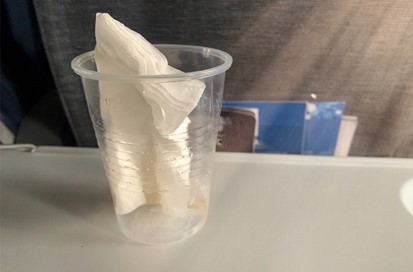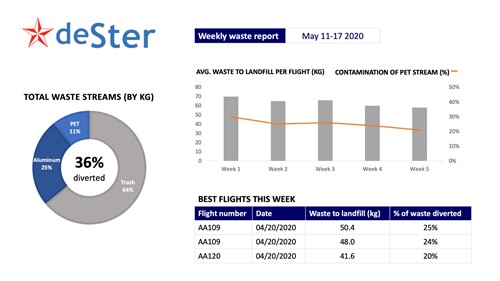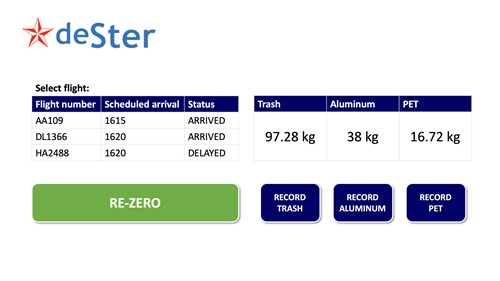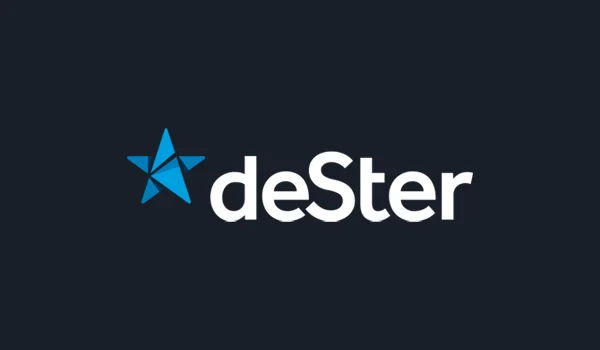n the S-Lab course offering of Spring 2020 at MIT Sloan, deSter and gategroup challenged a student team to tackle the issue of airline cabin waste. This initiative is in line with the 2025 sustainability objectives of deSter to have all products fit into the circular economy, by being recycled or composted.
“How can we translate sustainability challenges into future business opportunities? How can businesses and society move together towards a more sustainable world?” The MIT Sloan School of Management challenges students to address these questions in its course Laboratory for Sustainable Business.

Graduate students work with businesses on solutions to enhance their sustainability programs and contribute to solving real world problems, taking a holistic approach. In the S-Lab course offering of Spring 2020, deSter and gategroup hosted a student team2 to tackle the issue of airline cabin waste. This initiative is in line with the 2025 sustainability objectives of deSter to have all products fit into the circular economy, by being recycled or composted.
The team started identifying several initiatives that could result in cabin waste reduction and recycling. However, the common denominator of these initiatives was the lack of data about waste composition and quantity generated by every flight. Having identified the importance of data and the multiple constraints of the cabin environment and the catering facility, they designed a simple and low-cost solution to collect data and make it instantly available across the network for optimal material movement decisions.


About the One Planet network Sustainable Tourism Programme
Once captured, the data about the recyclable material collected would be shared via an online platform with participating facilities, and all stakeholders. This would allow administrators or algorithms to make optimized decisions with regards to accumulating and transporting the waste, as well as the recycling process and location. The objective would be to maximizing the value of recycled material by minimizing the cost and environmental impact of handling and processing the material. This solution is suited for domestic flights, and it also allowed a blueprint for application on international routes.
By relying on small physical and process changes, and integrating them with interconnected data collection systems, MIT Sloan graduate students offer the airline industry a launchpad to reduce cabin waste by capturing a higher value for recyclable material. While focusing mainly on plastic tableware equipment, the solution can be used for any waste material stream. With adequate hygiene and safety controls, it could be used to tackle the growing amount of waste that is generated by the new reality of the travel industry: single-use personal protective equipment.
This project aligns with our overall ECD approach which is based on the circular economy principles where we focus on closed loop recycling and organic compostable solutions. deSter is a member of the Ellen MacArthur foundation.
deSter is part of the advisory committee for the newly launched Global Tourism Plastics Initiative, led by the UN Environmental Programme and the World Tourism Organisation in collaboration with the Ellen MacArthur Foundation.
